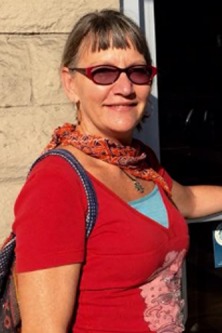How do I choose the right herbal school for me?
For those of you who are undecided as to which course of study to choose in herbal medicine, we offer these insights for your evaluation process.
- First of all, review the credentials of the course author(s). For instance, If you want to practice herbology, do they have sufficient clinical experience and/or are licensed to practice in any professional fields? Or if you want to manufacture products, do the formulator(s) have the experience and background in those areas?
- How old is the school? How long has it been operation? How many students does the school have?
- Talk with student graduates of that school (ask the school for contact information). Are those students practicing herbalism in any of its many fields of application?
- What credentials are offered by the school upon completion of its program of study? Many schools create attractive titles, such as Master Herbalist, but these are meaningless and carry no weight legally or otherwise in the herbal field. Other schools offer degrees, such as Masters or Doctorate, but the institution is not accredited for these.
- Consider the guiding philosophy of the school. Does it match your own philosophy and needs?
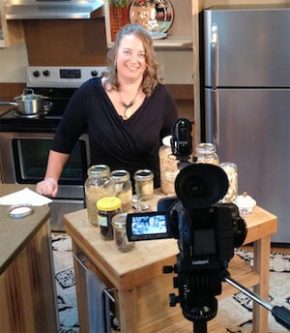
What is unique about the East West Herb Courses?
The East West Herb School is the second oldest distance learning herb school in the U.S. In operation since 1980, we have thousands of students and graduates from around the world and have graduated the largest number of leaders and professionals in the herbal industry. We offer certificate courses for all levels of interest and training, plus two western science courses. The East West Herb School trains home and community herbalists, herbal professionals and clinical herbal practitioners.
We are the only school to teach Planetary Herbalism, the most thorough blend of the three major herbal systems of the world: Western herbalism, Traditional Chinese Medicine (TCM) and Traditional Ayurvedic Medicine (TAM). Learning this system enables you to use herbs effectively no matter where you live. We then present a materia medica of over 600 plants along with advanced assessment skills. In addition, the East West School of Herbology provides annual on-site training with four levels of advancing expertise plus continuing education classes for graduates. Students can choose to specialize in Western, Chinese and/or Ayurvedic herbalism or blend all three.
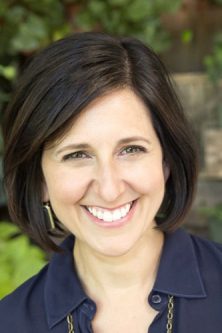
How Do I Choose the Right Herb Course for Me?
There are several considerations in choosing an herb course:
- You know nothing about herbs and just want to learn the basics first? Home Herbalist Course
- You are very interested in herbs and want to begin studying them? Family Herbalist Course
- You definitely want to an in-depth study of herbs and herbal medicine: Professional Herbalist Course
- You know you want to use herbs professionally in the natural health industry or as a practitioner: Professional or Clinical Herbalist Courses
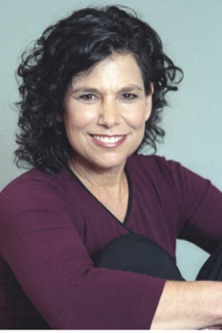
What is the average length of time required to complete the courses?
The courses are completed at your own pace in your own home. However, as a guideline, most students take around 6 months to complete the Home Herbalist Course, 6-12 months to complete the Family Herbalist Course, 2 years to complete the Professional Herbalist Course and 3 or more years for the East West Clinical Herbalist Program. Students have up to 5 years to complete the 36 Lesson Professional Course. Students enrolled in the Professional Course who have not completed all 36 Lessons within 5 years, but would still like to be an actively enrolled student, are charged a fee of $150 for an additional 2 years, beyond the first 5 years to complete the course.

Are there any additional materials I must purchase, or extra costs to meet, when I take any of the courses?
No other materials are required in addition to what is included with the courses. However, it is recommended that students read herb books and related subjects as appropriate. We also offer a selection of useful books, which may be purchased if desired.
Some of the lessons in the Family and Professional Courses have herbal projects to complete. Students choose the herbs for the hands-on projects and thus the herbs used are at the discretion of the individual. Cost will depend upon how elaborate or simple you choose to approach the projects, though usually this is a minimal amount.
A week long seminar is offered annually to which the student may travel and receive first hand instruction. Attendance is an additional cost and dedicated students are encouraged to attend the seminars. Those completing the East West Clinical Herbalist Degree Program must attend the Foundation, Intermediate and Advanced East West Seminar tracks. Graduate continuing education classes are offered at the seminars, too. We also recommend that students make an effort to attend any of the various herbal symposiums that take place around the country throughout the year.
Those in the East West Clinical Herbalist Degree Program must complete additional studies as outlined by that program, each at the student’s own costs.
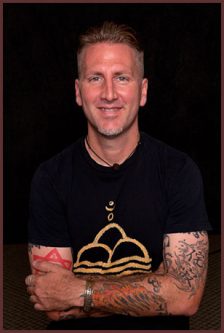
Will I be able to receive personal responses to my questions and evaluation of my progress?
Those taking the Professional Herbalist Course and the East West Clinical Herbalist Program receive personal responses and evaluations to their lesson tests, essays and projects. The Family Herbalist Course includes testing material with a self-correcting key. All students in any course may also log on to our website to receive answers to their questions and study material through dialogue with other students and the East West faculty in the private student classroom.
Will a student graduating from the Professional Herbalist Course be able to conduct a professional practice as an herbal consultant?
The curriculum vitae of the East West Professional Herbalist Course has positive recognition from some of the country’s most distinguished herbalists, many of whom are directors of established schools and holistic institutions themselves. The East West Herb School has enrolled thousands of students from 36 countries on every continent. We have on file letters of appreciation and praise from our graduates who are at present practicing herbology professionally. Some are also medical doctors, chiropractors, acupuncturists, massage practitioners, hypnotherapists, to name a few. Others now teach or sell their herbal products throughout the world. Many have obtained professional membership status in the American Herbalists Guild.
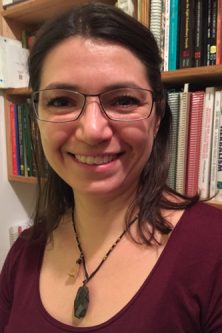
Will a student graduating from the Professional Herbalist Course be able to conduct a professional practice as an herbal consultant?
The curriculum vitae of the East West Professional Herbalist Course has positive recognition from some of the country’s most distinguished herbalists, many of whom are directors of established schools and holistic institutions themselves. The school has enrolled thousands of students from 36 countries on every continent. We have on file letters of appreciation and praise from our graduates who are at present practicing herbology professionally. Some are also medical doctors, chiropractors, massage practitioners, hypnotherapists, or acupuncturists to name a few. Many have obtained professional membership status in the American Herbalists Guild.
